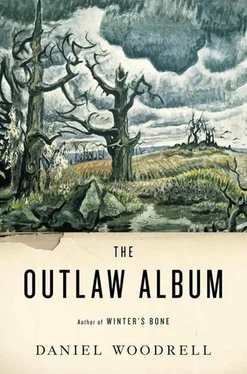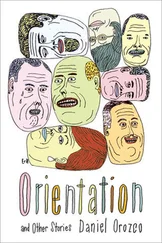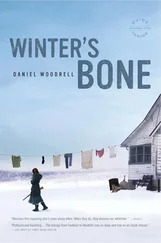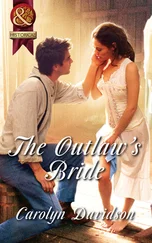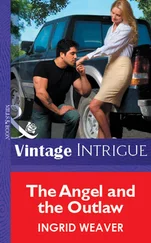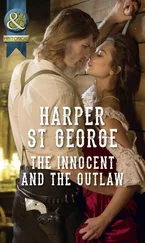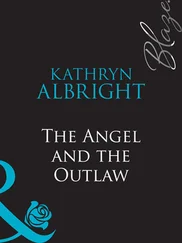By late May he had acquired a routine suited to this new version of himself: wake above the store before dawn, walk to the river, hang his robe on a low limb, plunge in and swim upstream until his arms balked, then float back to his robe as first light began to raise the sky. There would be coffee boiling over freshened campfires, bacon sizzling, trout split and dropped into the grease, and as he passed the earliest to rise he’d wave and they’d wave back. He’d open the store early, skin numbed by the river and feeling tightened ten years younger, the smell of the outdoors drying into his hair.
He hired two relatives of Nan’s to wrangle canoes and help out in general, a blood uncle named Royce, and Sky, who he took to be a ceremonial uncle of some sort, while he tended to the store. The locals who came in were often people of a kind he hadn’t truly believed still existed but found rewarding to meet: pioneer-lean old men who poached deer whenever hungry and wouldn’t pay taxes, their wives wearing gray braids and cowboy hats, clasp knives sheathed at their belts; men with the beards of prophets who read the Bible at a certain slant and could build anything, their women smelling of lavender, in gingham and work boots; folks living hidden in the hills and only reluctantly coming into contact with the conventional world for want of baby formula or headache powders. A few of these customers lingered to chat, but most said all they had to say with a slow nod hello and a jerk of the chin on the way out. There were some he didn’t want to linger, squint-faced men with cursive tattoos garbled in shades of blue, who cleaned his shelves of Sudafed and red matchsticks, then returned in a few days hoping to buy more of the same. Royce, who seemed slow in offering helpful advice to an outsider, finally said, “Mr. Morrow, them fellas is buyin’ all that so they can drive over the hill there and hide somewhere to cook up drugs. The red part from the matches and grains from them pills both help make the recipe.”
“There’s so much I don’t know.”
“That’s lesson one.”
Campers with children preferred the picnic tables that had been shot, because kids liked rubbing the holes, sticking their fingers inside while imagining exciting events that had led to gunfire erupting on this very spot. Not every table had been shot, and adults wanted to have rights to that exotic detail in any recounting of their vacations, also, and would wait for one to become unoccupied, then rush the family over to claim it, which sometimes caused tensions between the quicker and slower families, a little squabbling, which Morrow usually went out to settle. Come winter he’d fix this problem by blasting every table in the campground, and the various signs nailed to trees, too, but for this season he’d walk among the tents of many sizes and listen, bob his head as he absorbed more or less the same old story, then offer the children of the losing family cold drinks and bags of chips to distract them from whining about bullet holes. Sometimes he watched the children frolic—with skin browning and bug bites lumped on their necks, so many years spread unopened before them—and have a strong sense that he knew the true reason he’d returned here without allowing himself to investigate his memories and make it plain. That changed one day when Sky had traffic court at the county seat, and Morrow was left to drive the bus and canoe racks to retrieve floaters downstream at Spawt Mill. It was a festive spot in a deep gorge, hillsides heavy with forest, the green broken in spots by bare rocks that lunged into view. A pale dam backed the river into a giant pool, a huge and perfect swimming hole, the dam low enough to sit on with feet swishing in the water. A narrow opening in the dam at the near bank let water push into the old mill trace, but the wheel didn’t turn anymore. Morrow watched kids swing on a rope and flop into the river. Girls roamed on top of the dam, and young men followed at a slight distance, drinking beer, shoving one another around. Hawks dragged their shadows across the pool, fish jumped, and he was on this very spot at age fifteen, uncertain in all directions, gawking at a girl whose beauty stunned and terrorized him. She posed on the dam and didn’t wear a swimsuit, but an ankle-length hippie shift of some sort, thin cloth rich with Eastern patterns, mystic cubes and squiggles, and nothing underneath. Light passed through the V of her legs so clearly he didn’t have to guess. Maybe she hadn’t intended to get wet, but walked the dam barefoot with the other girls until carried away by the view, the smell of river, the roiling of fresh water down the sluice to the mill, the roaring and the laughter. Morrow was as though paralyzed by her from first sight, and she noticed, smiled his way, and stopped in the overflow on the dam, doing dance steps that splashed, then dropped her shoulder and looked rearward again, a gesture he never got over. Her skin immediately sang to him of summer fun, perhaps endless summer fun, and her eyes were brown places to romp, revel, rejoice—hair to her waist and deep dimples that opened when she smiled. She waved to him and he turned away, anguished by his attraction to her and her nearness, all words flown from his head. When he turned back, she was in the river, swimming toward him in that hippie shift, hair spread on the water, trailing behind, her girlfriends watching with interest. She stepped out of the river, standing tall, boldly revealed by the soaked cloth, walking straight to him. He spun on the gravel and took off before she spoke, but heard her say, “Are you kidding?” as he hustled with his head down to the store in the old mill and found his parents. He spotted her when they left, lost his nerve again as she watched him from the pooled water, but that day released her into his emotions to stay—he’d carried her with him as a feeling more than a picture, a sunken feeling linked to all things lost or untried, but now he had her face again, blooming young and clear, that smile, the wonderful skin of July. He knew she would have been the beginner’s romance teens should have, need to have, deserve, a magical summer of smitten days with moments of exploratory bliss that he could’ve savored all these years since, instead of feeling wrecked by the pitiless regret that he’d been such a no-balls virgin coward when confronted with what he most desired.
He drank whisky that night, the first time since leaving Nebraska. So many of the campers had long tanned legs and bare bellies, cute flaking noses, carefree laughter, husbands fishing somewhere until dark. At the supper hour he’d wandered between tents holding a paper cup of scotch on the rocks, sipping, eyes reddening, speech beginning to limp, enjoying the casual company of women who glowed and dressed for the heat. The sun was snaking brightly along the ridgeline; kids were diving from the bridge.
He returned to the store, called his oldest daughter at school in Palo Alto, but went to voice mail and left a message, “Don’t be stingy to yourself, babe. Overall, I mean, don’t be…I’m fine.” When he dropped the phone, Royce took the cup from his hand and set it beneath the counter. He said, “No misery gets sweeter dipped in devil juice, Mr. Morrow. Looks like you got customers.”
Out the window he saw a cloud of dust rise from the parking lot and watched as it grew wider and higher and spread over the nearest tents. People trying to eat or rest started hacking in the cloud, spitting, shielding their eyes as the dust swooped over them. The car was a sedan, a dented beater, branch scrapes in the paint, mud blown to the door handles, and music blasted from inside. The driver cut figure eights, gunning the engine then slamming the brakes to slide and swerve until the dust cloud enveloped the store and all of the tents. People began to stand and shout before the car stopped. The cloud continued to rotate and obscure while the music played.
Читать дальше
